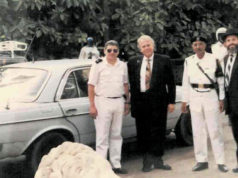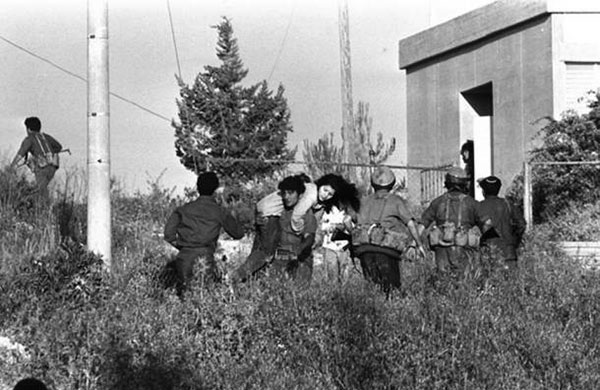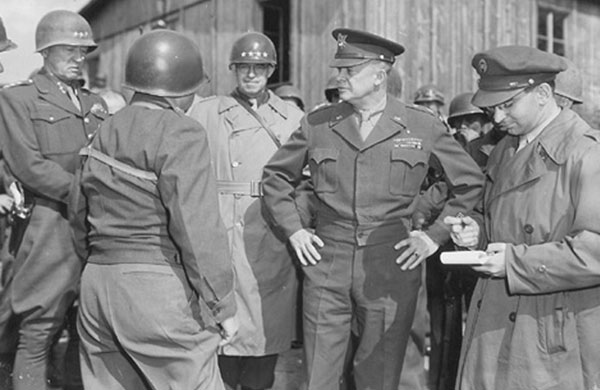
An enticing and provocative program at the Museum of Jewish Heritage brought together some well-known authors on the issue of Jews living in Islamic lands.
From a historical perspective, we know that approximately 800,000 Jews left Arab countries after the creation of the State of Israel. The first wave of immigration in the Syrian community came in the early part of the 20th century. Yet Jews from these countries continue to identify with the countries from which they hail, often talking of a lost culture.
Dr. Robert Satloff, Executive Director of the Washington Institute on Near East Policy and the author of nine books, was the moderator. He was joined in a roundtable discussion by American novelist Andre Aciman, who wrote Out of Egypt, the memoir of growing up in Egypt as a secular Jew, and Lucette Lagnado, born in Cairo, author of The Man in the White Sharkskin Suit, for which she won the Sami Rohr Prize for Jewish Literature. Finally, Iranian Muslim Reza Aslan, author of No god but G-d: the Origins, Evolution and Future of Islam, presented and answered questions.
Dr. Satloff defined a number of terms, many of which are misused by the public. For example, Islam is a religion and its adherents are Muslim. Islamic is a descriptive term for a Muslim or can be used to refer to the way things ought to be according to the precepts of Islam. Islamist has political connotations. Then we come to the word Arab, which Dr. Satloff described as a much narrower term, because not all Arabs are Muslims, nor are all Muslims Arabs. Arab refers to people who use Arabic as a language, whether they are Muslim Arabs, Christian Arabs or Jewish Arabs. Certain countries, like Morocco, Syria and Yemen are Arab countries because Arabic is their primary language.

Dr. Satloff noted that there have been three great migrations in the history of the Jewish people. The first migration was after the destruction of the Temple; the second was after the expulsion from Spain in 1492; and third followed the creation of the State of Israel, born on the ashes of the Holocaust.
Dr. Satloff added that there are two huge myths about Jews who lived in Muslim lands. The first myth is that Jews and Muslims lived for hundreds of years in peace and harmony with equal rights. Dhimmi status—that is, that Jews and Christians were a protected people under Islamic governments—did not provide equal rights. It allowed Jews the freedom to practice their religion and live autonomously, but the experience of Jews changed drastically based on time and place. Peace and harmony, Dr. Satloff argued, did not characterize the experience of Jews living in Muslim lands.
The second myth is that Jews were always persecuted and treated poorly and that the Jewish experience was more painful than the experience of Jews living in Christian lands. In reality, during the Middle Ages, a Jew was luckier to be born in a Muslim land than in a Christian land. However, life in Muslim lands was “not a rose garden,” said Satloff. Jews were not equal in any legal sense and there were lots of restrictions. Jews were often the objects of attacks, often localized and there were often large government sanctioned pogroms.
“Historically, there was no country where episodes did not occur. In some countries, the episodes were often; in others not so often,” he said. “Jews had to be wary under control of Muslim leaders.”
During the 19th century, almost all Arab lands came under colonial control, either by the French or the British. Jewish communities looked to the colonists as a welcoming power. The colonists were a security blanket against Muslims imposing laws and the Jews looked to the colonists to protect them against the masses. The colonial powers took advantage of Jewish fear and drove wedges. For example, the French extended French citizenship to Algerian Jews, and overnight 140,000 Jews were no longer dhimmi.
By the mid 20th century, the lives of Jews living in Islamic lands had changed drastically and most were forced into exile. While Jews in Europe had a tragic experience during World War II, the experience of Jews living in Islamic lands varied. The Germans had control of North Africa from the spring of 1940 to 1943. While Syria and Lebanon were only briefly under Vichy control, Iraq had horrible pogroms in 1940 and 1941.
Tunisia was the only North African country under German occupation. Everything that happened to the Jews of Europe, except extermination, happened to the Jews of North Africa. Fortunately for Egyptian Jews, the Germans were stopped at the border. But in the summer of 1940, the Jews of Algeria woke up to find out that they had lost their French citizenship. One hundred and ten forced labor camps were set up for the Jews in Algeria, Tunisia and Libya. Morocco never sent its Jews to forced labor. In Tunisia, the SS rounded up the Jews in December 1942 to send them to forced labor. To their great fortune, the Allies freed them in the spring of 1943. The original Holocaust plan called for the extermination of 700,000 French Jews, which included the Jews in North Africa.
After Dr. Satloff’s overview of the experience of Jews living in Arab lands, authors Lucette Lagnado and Andre Aciman described their experiences growing up and leaving Egypt. Lagnado was born in Cairo, the daughter of a Syrian Jewish father. She said that as Egyptian citizens, they were not forced to leave, but that the Jewish community had essentially died. Her father wanted to stay but everyone was leaving and her siblings especially wanted to go. She described leaving Egypt as the central tragedy of her father’s life and that after coming to America, he couldn’t reinvent himself. Lagnado said that her parents felt like exiles.
Aciman, who was from Alexandria, said that his family lost everything. His father’s factory was nationalized and their assets were frozen. During the Suez campaign, his family became stateless and was ordered to leave Egypt. While European Jews came to the US and reinvented themselves, Aciman said his father couldn’t recover.
“I belong to Alexandria and a moment in history,” said Aciman. He said that he could never get grounded after leaving Egypt. After attending a British school, he became an Italian citizen, thought he wanted to be in France but hated France when he got there, and eventually became an American citizen.
After the roundtable discussion, and some questions, Dr. Reza Aslan presented his thoughts before taking questions. Aslan is an Iranian Muslim who holds a Master’s Degree in theology from Harvard Divinity School and a PhD in the History of Religions from the University of California.
Dr. Aslan provided an overview of the history of Islam and the influence of Judaism on Islam. For example, in its early days, the direction of prayer was toward Jerusalem, there was an annual fast on Yom Kippur, purity and marriage laws applied as did dietary law, and the prophet Muhammed married a Jew.
Later, changes were made, such that the fast is now Ramadan, the direction of prayer is toward Mecca, even though Jerusalem is still a holy city, and the dietary laws were adjusted. During the first few centuries of Islam, Muslims read both the Koran and the Torah together. They also engaged in peaceful discourse with the Jews of Arabia. Dr. Aslan contends that the land and water issues facing Israel and the countries of the Middle East today can be worked out.
Following his presentation, which was interrupted a few times by a sometimes hostile audience, there was a contentious question and answer period that raised many issues never answered.
The program was both spellbinding and provocative. Dr. Satloff had a lot of interesting facts and gave a comprehensive overview. Lagnado and Aciman provided the human experience. The program was balanced by Dr. Aslan, who spoke like an academic, calling for peaceful coexistence as a way to work out basic issues. He failed to recognize that the issues that challenge peace in the Middle East are caused by fundamentalist religious zealots.
______________
Sarina Roffe, a community member, is a career journalist. She holds a BA in journalism from the University of Maryland.



